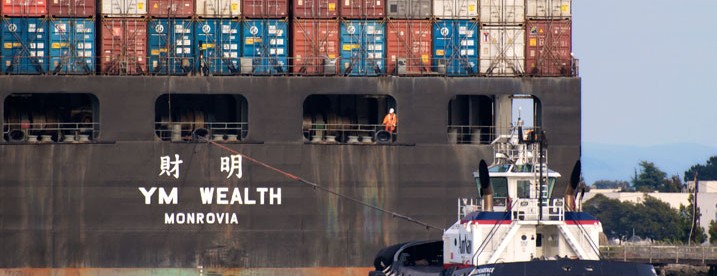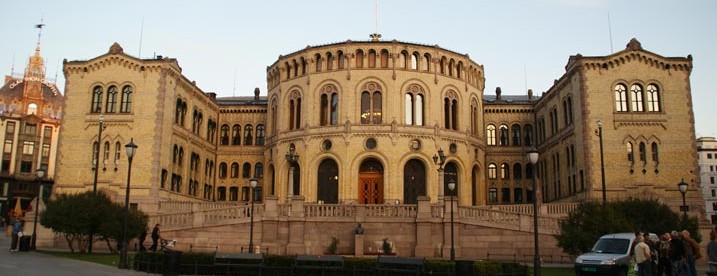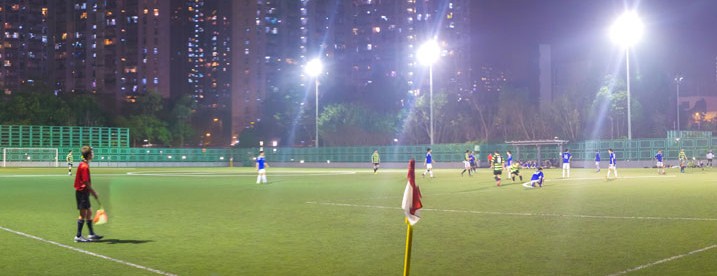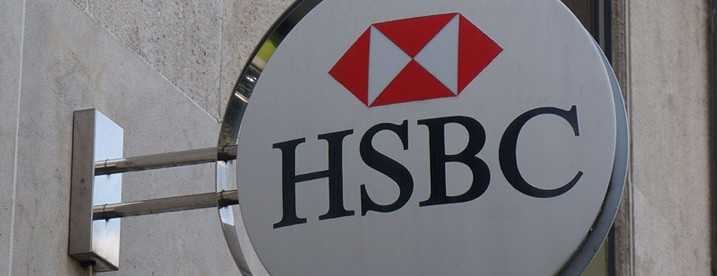By Heather Lowe, August 6, 2015

We have the financial transparency ideas, now we need the right open data standards to go with them!
As a member of the Financial Transparency Coalition (FTC), Global Financial Integrity is seeking proposals from experts in the area of data standards for a consultant to produce a scoping study that identifies the range of open data standards that might accompany the FTC’s transparency platform and an assessment of the related political challenges and opportunities.
Deadline for applications is August 21 ! Please see the Request for Proposals (RFP) for complete information.
By Heather Lowe, July 22, 2015

Law Firm Focuses Attention on Practice Illicitly Draining Over US$700 Billion per Year from Developing and Emerging Economies
While much of GFI’s focus is on improving the capacities of customs departments, it is unfortunately rare for us to find American law firms writing articles on customs issues applicable to our work. Attorneys at the global law firm of White & Case have recently published one worth reading, however.
The authors are noting the increase of U.S. enforcement in the customs area, and most of the cases cited involve trade misinvoicing/fraud, a practice which accounts for about 80 percent of GFI’s illicit financial flows estimates—illegally draining US$730 billion from developing and emerging economies in 2012.
By Sophie Haggerty, June 15, 2015

Other Countries Should Follow Norway’s Example
On June 5, the Norwegian Parliament unanimously voted to establish a public registry of corporate ownership information, becoming the latest country to tackle the abuse of anonymous companies through increased transparency.
Anonymous companies are one of the top tools used by criminals, kleptocrats, tax evaders, and terrorists to launder dirty money with impunity. Requiring companies to publicly disclose in a central registry their ultimate, human, beneficial owner(s) is regarded as the gold standard in tackling the abuse of these phantom firms.
Norway’s strong endorsement of transparency comes as no big surprise: the Scandinavian country routinely ranks near the top of transparency and anti-corruption rankings, and Norway was the first country to get behind the push to curb illicit financial flows. Their support on this topic dates back to the formation of the Norwegian Government-led Task Force on the Development Impact of Illicit Financial Flows in 2007 and their financial backing of the Financial Transparency Coalition at its inception in early 2009–long before illicit flows topped the global agenda.
In establishing a public registry, Norway joins Denmark and the United Kingdom—the first country to commit to a public registry of beneficial ownership information back in October 2013. The UK followed through with its commitment this March by passing historic legislation needed to fulfill its pledge.
By Heather Lowe, June 2, 2015

GFI’s Heather Lowe Proposes Reinvesting FIFA Forfeiture Funds in Inner-City Youth Soccer Programs
Following from my blogs on Friday and Monday about different aspects of the FIFA case, I’d like to talk a little bit about the forfeiture funds and penalty payments that the U.S. Department of Justice (DOJ) will be collecting in this case and what will happen to them. A proceeding like the FIFA case can result in a really large pile of cash that will be under DOJ control. Unless the Defendants are acquitted of the charges against them at trial or the DOJ decides to drop the case against a Defendant for some reason, we can expect that the DOJ will be collecting from those Defendants the bribe money that they received, anything they bought with that money that will then be auctioned off (for example, check out the list of real estate that will likely go under the hammer in Florida and Georgia from paragraph 343 of the indictment), and, possibly, additional fines in the form of penalties. It is going to add up.
Recouping Expenses
It is obviously critical that the DOJ, Federal Bureau of Investigation (FBI), Internal Revenue Service (IRS) and other government agencies that were involved in this case are able to recoup the money they spent working on this investigation over the past few years. Another way of looking at it is that they need to keep a sizable chunk in order to ensure that they have the resources to work cases like this over the next few years. No matter how you slice it, that’s important to American taxpayers as well, who pay less in taxes because the DOJ and other agencies are able to fund part of their work through forfeiture and penalty payments instead of through tax dollars. Win-Win.
By Heather Lowe, June 1, 2015

The FIFA Bribery Case Could Lead to Compensation for the Victims of FIFA’s Alleged Corruption
You may have noticed that the U.S. Department of Justice (DOJ) is making sure that we have an idea of whom the victims in this FIFA corruption case are. They noted it in their press release, talked about it at their press conference, and included it in the indictment at paragraph 73. I agree with the Department of Justice that the victims of this case are important. This blog is about why this case could potentially lead to compensation for those victims in a way you might not have considered.
So who are those victims? The DOJ’s indictment describes how FIFA, the FIFA confederations, the confederation members (including national member associations), youth leagues, and development programs all lost out on funds from the marketing contracts that may have been more lucrative for FIFA if there had been competitive bidding for the contracts. In addition, other sports marketing companies that may have lost out on a bid to secure the marketing rights—or may never even had a chance to bid—are also victims.
For those of us that work on development issues, this is a particularly important point. Commercial bribery distorts markets. Among other things, it can:
- prevent honest firms from winning bids and therefore stymie their growth,
- block new companies from entering a market, and
- weaken that market in general because the best service, price, processes, etc., are no longer going to rise to the top, keeping market standards low and depriving consumers of better quality services and products.
When a country or industry is plagued by endemic bribery, these negative economic effects increase exponentially and a country’s economy cannot grow. That’s why the DOJ doesn’t want large-scale bribery taking root in the U.S., and rightly so.
By Heather Lowe, May 29, 2015

This was a very exciting week for lawyers who are sports enthusiasts – the Department of Justice indicted fourteen FIFA officials, alleging that they are part of what one could conclude from reading the indictment is a massive, multifaceted, bribery ring. Informal allegations have been made before, and the whispers that FIFA is synonymous with bribery and corruption have been growing louder over the years. But this week the Department of Justice shouted it from the mountain top (or, perhaps more accurately, in front of a lot of the international press corps, which was probably more effective).
There are a number of interesting facets to the case that is now before us. The first is that for a case about bribery, a charge of bribery seems to be conspicuously absent. The Defendants were indicted for a “pattern of racketeering activity,” including charges of violating the Travel Act in aid of racketeering, money laundering, money laundering conspiracy, wire fraud, wire fraud conspiracy, and other charges that do not expressly include bribery. Why is that?
By Koen Roovers, Global Financial Integrity, February 18, 2015

The SwissLeaks Scandal around the HSBC Bank Subsidiary There Has Highlighted How Globalization Can Facilitate Tax-Dodgers. Only a Bright Spotlight of Information Can Deter Them.
A major leak of incriminating HSBC records last week resulted in print and television news coverage around the globe, trended on Twitter for several days and prompted several governments to start long-anticipated investigations. Through its Swiss entity, the British banking juggernaut helped customers from around the world to hide their money for tax evasion or other nefarious purposes without any questions asked. In fact, in several of the ‘scripts’ which accompany the accounts, banking personnel are seen to be very willing to accommodate dubious requests—from allowing cash withdrawals worth millions of dollars to setting up sham legal entities to obscure the ownership of the funds.
The ‘Lagarde list’, as the files have come to be known, has been around for a couple of years and so many have been asking: ‘Why do we only see government action once a group of reporters put the spotlight on this?’ Another frequent question has been whether the bank has really (as it claims) cleaned up its act.
Relatively few commentators have asked: how do we prevent this in the first place?
By Joseph Spanjers, January 20, 2015

As a Percent of GDP, Sub-Saharan Africa Suffers the Largest Illicit Outflows of Any Region in the World
Global Financial Integrity’s (GFI) latest annual report on illicit financial flows–released just last month–estimates the volume of illicit financial outflows from the developing world from 2003 to 2012. It is the first report to estimate these flows for 2012, when they reached a record US$991.2 billion.
Already, this US$991.2 billion figure is being cited quite a bit; it is the main figure cited in many of the articles of we’ve seen on the report in the media. Take, for example, this story in The Guardian, this article from Reuters, or this piece in The Wall Street Journal. It’s the big, flashy, almost-trillion dollar number.
However, I’d like to draw your attention to a different figure, one that emphasizes even more clearly the implications of illicit financial flows on development: 5.5.








